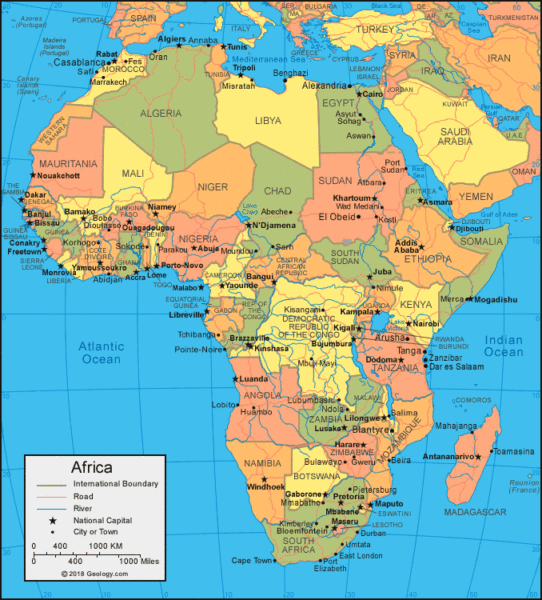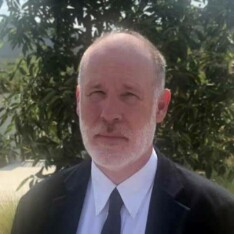
by Todd Myers
On October 23rd, 2019, the Russian Federation organized the Russia-Africa Summit to initiate greater cooperation between Russia and the sovereign states of Africa. The summit established a formalized partnership to strengthen existing and potential political, security, economic, legal, scientific, technical, humanitarian, information, and environmental cooperation. The Russians argued that this cooperation provided a way for African states to affirm their sovereignty and resist European and American coercive diplomacy.
Larger states tend to act as champions for the commercial interests of the businesses of their nationals, whether those businesses are state-owned enterprises or private companies headquartered within that state’s boundaries. This reality makes it difficult to discern the boundaries between political and economic interests and motivations. As a practical fact of analysis, we learn to view current affairs through the lenses of political economy and geopolitics.
Of the great and near-great powers, China has the largest footprint in Africa. China’s dollar trade volume with the continent is around $200 billion compared with the United States at $60 billion. The European Union as a whole does approximately $300 billion worth of trade with the continent. Russia and Japan’s trade with Africa hovers around $20 billion each. The relatively small stake the Russians have in the continent’s affairs is concentrated in the strategically important security and energy sectors, giving them more influence than their stake would indicate.
The Americans and the Europeans view the Russians as a malignant force in the continent’s politics and have not welcomed their forays into the political economy of the continent. The sales of Russian arms, the operations of Russian private military companies, the opaque business practices of Russian companies, and the dissemination of information that sullies the reputations of the Americans and the Europeans are viewed as particularly disruptive. Russian strength in the nuclear energy sector and the oil and mining sectors are viewed as similarly problematic. Few states welcome competition in developing the supply chains necessary to feed their economies.


Unlike the leaders of the United States and the European Union, the leaders of African countries easily appreciate the interest and resources the Russians are supplying the region. In ethnically divided countries, security and regime stability are by no means a given. Purchasing cheap and reliable Russian weapons is one way to circumvent the Western sanctions imposed on African leaders who violate human rights in their efforts to preserve control of power. Nigeria and Ethiopia – both accused of human rights abuses by the United States and facing sanctions – have recently signed security cooperation agreements with Russia and are negotiating to procure arms needed to deal with domestic insurgencies. The Russians have over 20 such agreements with African countries.
Besides these official agreements, Russian private military corporations, conventionally referred to as the Wagner Group, have operated throughout Africa, effectively marketing Russian military competence while distancing the sovereign state of Russia from any problems emerging from the security operations undertaken by the group. The Wagner Group has conducted operations in the Central African Republic and Libya and is presently engaged in conflicts in Mali, Mozambique, and Sudan.
The two coups recently occurring in Mali led the French President to express concerns that political instability in Mali could increase the Islamic radicalism fueling the war in the Sahel. The French signaled their displeasure by reducing their force commitment to military operations – opening Mali to the Wagner Group. One of Russia’s largest customers for arms in Africa, Algeria, has agreed to help Mali pay for Wagner Group services. Avoiding disruptions to supply chains because of radical insurgencies seems to be in the interest of both regimes seeking stability and regimes seeking access to important resources for the endeavors of their economies. Whoever supplies security will gain an advantage in negotiations to access economic opportunities in the region, and Russia currently accounts for 49% of the arms trade on the continent.
The international community views arms and mercenaries with healthy skepticism. Developing nations using large portions of their GDP on security cannot invest in the human capital that would lead to economic growth and the benefits of expanding networks of voluntary transactions. Lack of clarity about capabilities and possible payoffs lead to conflict escalation and the wasting of scarce resources on arms races that lead all parties to be worse off than they would be if they could solve their problems cooperatively. Information asymmetries lead to a continent where regimes spend more on security than on investments in human capital. Despite the existence of international treaties that prohibit arms trade to conflict zones and prohibit the use of mercenaries, it is likely that the complex politics on the continent will continue to support strong demand for arms and mercenaries.
The Russians have engaged in disinformation campaigns to strengthen their position on the continent. Dr. Shelby Grossman of the Stanford Internet Observatory has identified and analyzed disinformation campaigns in the Central African Republic, Libya, and Sudan. The campaigns have attempted through fake Facebook accounts to build support for the sitting government in CAR, the Khalifa Haftar faction in Libya, and to lay the foundation for long-term credibility in Sudan. Disinformation campaigns are a low-cost means of mobilizing public opinion in a targeted country to benefit the targeting country’s national interest, possibly at the expense of the targeted country’s stability.
Russia is also trying to tie countries to it by promoting the development of nuclear energy in Africa. Russia’s state-owned Rosatom is working on nuclear research centers and reactors with Ethiopia, Nigeria, Rwanda, and Zambia and smaller-scale nuclear technology projects with Ghana, Sudan, and Uganda. Nuclear power is an alluring source of electricity for a power-starved continent. Still, its high start-up costs and high human capital requirements may be a poor match for many of Africa’s developing economies. The development of such projects may leave African countries in debt, stranding the countries dependent upon Russia to manage power plants for countries lacking the skills to deal with the dangers posed by these plants. It is not clear that previous efforts to develop nuclear power on the continent have paid off for Russia. Russia’s work on nuclear reactors in South Africa did not yield the influence the Russians were expecting. Extending loans to Egypt as they construct the El Dabaa nuclear power plant may prove to be similarly disappointing in the influence that it will generate.
Besides engagement with arms, mercenaries, disinformation, and nuclear energy, Russian mining and oil companies have a small presence on the continent. Russia accounts for around one percent of foreign direct investment on the continent with investments in platinum mining in Zimbabwe, gold mining in Sudan, bauxite mining in Guinea, and the oil and gas industry in Angola, Nigeria, and Egypt, and pending deals with Algeria and Mozambique. Finding lucrative opportunities where they can is part of Russia’s strategy for turning a profit from their relations with the continent.
Russia’s imprint in African affairs is relatively small. Its involvement focuses on securing supply chains and access that will offer Russia options for development when facing the pressure of sanctions from Western governments for its controversial activities in its near-abroad. Given that security needs are nontrivial problems for many African regimes, Russia offers attractive products to leaders looking for a force to back up their claims to legitimacy. By meeting the demand for security needs in a cost-effective manner, Russia may secure access to resources that it could only obtain in its own country at a higher price. By emphasizing the development of military bases and influence in East Africa, Russia secures a supply chain and warm water access that bolsters its great power claims.
Russia’s portfolio in Africa and the earlier context of the Cold War should not lead to overreacting to its attempts to expand its influence on the continent. In the complex multipolar world emerging, we must avoid failed interventions such as Libya and Syria. The Russians’ transactional approach to doing business on the continent may offer Americans insight into the utility of force and its limits. Returning to a simple policy of containment will lead us to unnecessary expenditures of resources. It will likely echo the failures of the Cold War as efforts to find a model of sustainable development on the continent will be derailed by outside actors stirring the pot of conflict in search of marginal gains for themselves. Fighting Russian influence will not be the way to improve human rights and promote liberal values. The United States must find robust relationships built upon mutual benefits that are in accordance with our values and the values of our current and potential partners. We must mind our business and avoid crusades.




